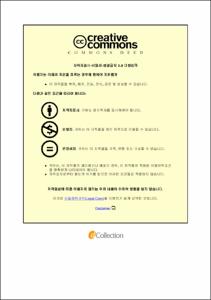노인 고혈압 환자의 자가간호 영향요인: 인지기능을 중심으로
- Issued Date
- 2021-02
- Abstract
- The purpose of this study was to identify the levels of cognitive function and self-care behaviors and their correlations among elderly adults with hypertension.
The measurement tools used were the Korean version of the Hypertension Self-Care Profile (HBP SCP)–Behavior Scale , Korean Mini-Mental Status Examination (K-MMSE), and Montreal Cognitive Assessment-Korean version (MoCA-K). The empirical data were collected from an interview survey using a structured questionnaire among 105 elderly adults with hypertension in a general hospital(more than 800 outpatients per day) located in Gyeongsangbuk-do Province. Data were collected between October 15, 2019, and January 15, 2020. The data were analyzed by frequency, percentage, mean, standard deviation, t-test, analysis of variance, Pearson's correlation coefficients, and multiple regression analysis using SPSS/WIN 22.0 software.
The results of this study were as follows. First, the total score of self-care behaviors (total: diet and except diet) was indicated to be 57.78 of 80 points, that of hypertension self-care behaviors (diet) was indicated to be 28.72 of 44 points, and that of hypertension self-care health behaviors (except diet) was indicated to be 29.04 of 36 points. Second, differences in hypertension self-care behaviors (total) according to characteristics were found to be significantly different in terms of education level, cohabitation with family, the presence of comorbidities, K-MMSE results, and MoCA-K results. Third, there were significant positive correlations between MoCA-K results (r=.27, p<.010) and hypertension self-care behaviors (diet). There were significant positive correlations among K-MMSE results (r=.26, p=<.010), MoCA-K results (r=.32, p<.010), and hypertension self-care behaviors (except diet). There were also significant positive correlations among K-MMSE results (r=.22, p<.050), MoCA-K results (r=.35, p<.001), and hypertension self-care behaviors (total). Fourth, according to the results of multiple regression analysis of hypertension self-care behaviors (diet), the influencing factors were religion (β=.27, p=.007) and MoCA-K results (β=.31, p=.002), and the explanatory power of this model was 13%. According to the results of multiple regression analysis of hypertension self-care behaviors (except diet), the influencing factor was the presence of comorbidities (β=-.20, p=.032), and the explanatory power of this model was 20% .
In conclusion, it is necessary to consider religion, cognitive function, and the presence of comorbidities to improve self-care behaviors in elderly adults with hypertension. In addition, it will be necessary to identify levels of cognitive function and the factors affecting self-care behaviors in various aspects through continuous studies and to develop nursing interventions for improving hypertension self-care behaviors based on this study.
본 연구는 노인 고혈압 환자의 일반적 특성, 인지기능과 자가간호행위의 정도와 자가간호행위의 영향요인을 파악하기 위한 서술적 조사 연구이다.
측정도구는 한국어판 고혈압 자가간호행위 측정도구(HBP SCP-Behavior Scale), 한국형 간이정신상태검사(K-MMSE), 한국어판 몬트리올 인지검사 (MoCA-K)를 사용하였다. 연구대상은 S시에 소재한 1일 800명 외래환자가 방문하는 종합병원에 노인 고혈압 환자 105명을 대상으로 하였다. 자료 수집은 2019년 10월 15일부터 2020년 1월 15일까지 조사하였다. 자료 분석은 SPSS version 22.0 통계프로그램을 이용하여 빈도분석, 백분율, 평균과 표준편차, t-test, ANOVA, Pearson's correlation, multiple regression analysis를 사용하였으며 본 연구결과는 다음과 같다.
첫째, 대상자의 자가간호행위(전체)는 80점 만점에 57.78점이었으며, 자가 간호행위(식이)는 44점 만점에 28.72점, 자가간호행위(식이 외)는 36점 만점에 29.04점으로 나타났다. 둘째, 대상자의 특성에 따른 고혈압 자가간호행위의 차이는 교육수준, 종교, 결혼상태, 동거가족 유무, 동반질환 유무, K-MMSE, MoCA-K에서 차이가 있는 것으로 나타났다. 셋째, 대상자의 특성과 자가간호행위(식이)의 상관관계는 MoCA-K (r=.27, p<.010)에서 유의미한 정적 상관관계가 있는 것으로 나타났고, 자가간호행위(식이 외)의 상관관계는 K-MMSE (r=.26, p=<.010), MoCA-K (r=.32, p=<.010)에서 유의미한 정적 상관관계가 있는 것으로 나타났고, 자가간호행위(전체)의 상관관계는 K-MMSE (r=.22, p=<.050), MoCA-K (r=.35, p=<.001)에서 유의미한 정적 상관관계가 있는 것으로 나타났다. 넷째, 대상자의 자가간호행위(식이)의 영향요인은 종교(β=.27, p=.007)와 MoCA-K (β=.31, p=.002)로 모형의 설명력은 13%이며, 다중회귀 분석 결과 회귀모형은 유의하였으며(F=8.05, p=.001), 자가간호행위(식이 외)의 영향요인은 동반질환 유무(β=-.20, p=.032)으로 나타났으며, 다중 회귀분석 결과 회귀모형은 유의하였으며(F=4.97 p<.001), 모형의 설명력은 20%로 나타났다.
결론적으로 노인 고혈압 환자의 자가간호행위의 이행을 높이기 위해서 대상자의 종교, 인지기능과 동반질환 유무를 고려하여야 한다. 추후 지속적인 연구를 통해 노인 고혈압 환자의 자가간호행위의 영향요인을 다양한 측면으로 파악하고 이를 바탕으로 인지기능의 측정을 선행하여 고혈압 자가 간호행위을 증진시킬 수 있는 간호중재의 개발이 필요할 것으로 생각된다.
- Alternative Title
- Factors affecting self-care among older adults with hypertension:Focusing on cognitive function
- Awarded Date
- 2021-02
- Degree
- 석사
- Citation
- 정수연. (202102). 노인 고혈압 환자의 자가간호 영향요인: 인지기능을 중심으로.
- Type
- Thesis
- Source
- https://library.kmu.ac.kr/search/media/url/CAT000001785320
- Appears in Collections:
- 2. College of Nursing (간호대학) > 석사
- 파일 목록
-
-
Download
 THESIS-Nursing-2021-006.pdf
기타 데이터 / 583 kB / Adobe PDF
THESIS-Nursing-2021-006.pdf
기타 데이터 / 583 kB / Adobe PDF
-
Items in Repository are protected by copyright, with all rights reserved, unless otherwise indicated.